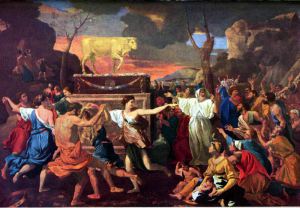A heretic by any other name (4)...

February 17, 2010

Brian McLaren's problem with the Bible (which he loves, by the way) is that so much of it is just plain wrong. Among the many things that the Bible gets wrong is what it says about God. Don't misunderstand. The Bible records some things about God that are true (i.e. the things Brian likes). But the Bible leads us seriously astray in much of what it declares. Thankfully, Brian McLaren is here to help us discern the difference.
From Mike Witmer:
Is God violent?
Brian begins this section by admitting that he has a big problem. It helped his new kind of Christianity to assert that the Bible is our cultural library rather than authoritative constitution, but he still has to wrestle with the fact that this library contains many bloody books. In Brian’s words, he needs a way to deal with the numerous “violent images, cruel images, [and] un-Christlike images” of God that are found in the Bible.
Most troubling is the God who appears in the Noah narrative. Brian complains that “a god who mandates an intentional supernatural disaster leading to unparalleled genocide is hardly worthy of belief, much less worship. How can you ask your children—or nonchurch colleagues and neighbors—to honor a deity so uncreative, overreactive, and utterly capricious regarding life?”
Brian solves his problem by misusing the concept of progressive revelation. Everyone recognizes that God reveals more of himself as the Scripture narrative progresses. In the Old Testament God told the Israelites that he was one (Deut. 6:4), and then at the incarnation and Pentecost he revealed that he was also two and then three. But note that God’s future revelation expands rather than contradicts what came before. New Testament Christians still believe that God is one, as much as any OT Jew, but they now confess that God’s oneness also makes room for three persons.
Conversely, Brian asserts that future “revelations” supplant and correct earlier passages of Scripture. So while he cannot “defend the view of God in the Noah story as morally acceptable, ethically satisfying, and theologically mature,” he concedes that this early, immature view of God was at least a step up from the stories of God told by other religions of its day.
I put the term “revelation” in quotation marks above because Brian seems to think that the God we find in Scripture is merely what humans at the time thought of him. He writes: “when we ask why God appears so violent in some passages of the Bible, we can suggest this hypothesis: if the human beings who produced those passages were violent and genocidal in their own development, they would naturally see God through the lens of their experience. The fact that those disturbing descriptions are found in the Bible doesn’t mean that we are stuck with them….”
Read the entire post HERE.




